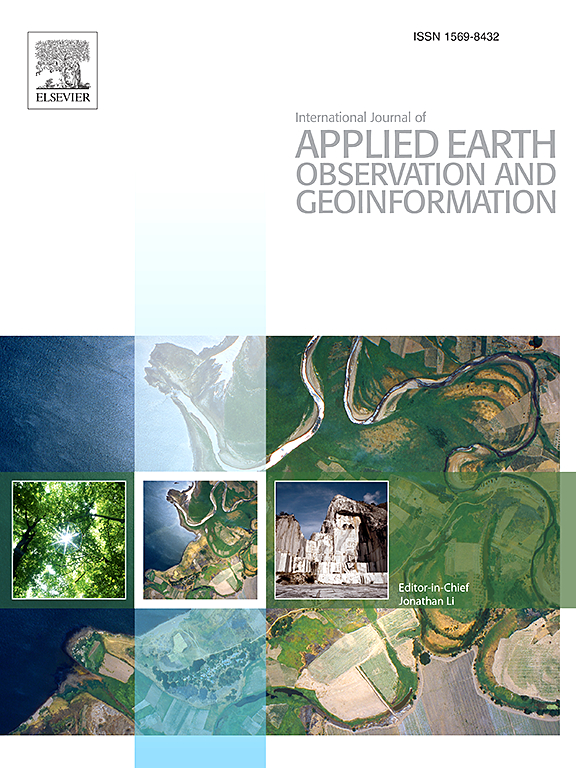Network invulnerability modeling of daily necessity supply based on cascading failure considering emergencies and dynamic demands
IF 7.6
Q1 REMOTE SENSING
International journal of applied earth observation and geoinformation : ITC journal
Pub Date : 2024-10-24
DOI:10.1016/j.jag.2024.104225
引用次数: 0
Abstract
Confronting the escalating challenge of emergencies, the urban supply network of daily necessity is an important defense line for human well-being. This study introduces a groundbreaking approach that leverages mobile signaling data, departing from static regional data, to model large-scale and high-precision urban supply-demand network. Moreover, a significant stride in assessing network invulnerability is presented by incorporating cascading failure and emphasizing demand-side factors in attack strategy simulations. This approach marks a paradigm shift in network invulnerability simulation: moving from network topology characteristics to a human-centric approach, which helps better identify vulnerable zones. The model’s robustness is corroborated through simulations of major disaster scenarios. The results indicate that: 1) High-precision human mobility data promises large-scale urban supply-demand network modeling with high accuracy. 2) In regions characterized by greater vulnerability, the establishment of local supply networks demonstrates efficacy in mitigating the impacts of minor disasters. 3) During various stages of cascading failure, the leading factors contributing to community supply shortages vary, with population density being the predominant factor. This research propels the methodology forward, incorporating multi-scenario simulations to augment practicality, and offers valuable insights for urban supply system enhancement.
基于级联故障的生活必需品供应网络脆弱性建模,考虑突发事件和动态需求
面对不断升级的突发事件挑战,城市生活必需品供应网络是人类福祉的重要防线。本研究提出了一种突破性的方法,即利用移动信令数据,从静态区域数据出发,建立大规模、高精度的城市供需网络模型。此外,通过在攻击策略模拟中纳入级联故障和强调需求方因素,在评估网络脆弱性方面取得了重大进展。这种方法标志着网络脆弱性模拟的范式转变:从网络拓扑特征转向以人为中心的方法,有助于更好地识别脆弱区域。通过模拟重大灾难场景,证实了该模型的稳健性。结果表明1) 高精度的人员流动数据有助于高精度地建立大规模城市供需网络模型。2) 在脆弱性较高的地区,建立本地供应网络可有效减轻轻微灾害的影响。3) 在级联故障的不同阶段,导致社区供应短缺的主要因素各不相同,其中人口密度是最主要的因素。这项研究推动了方法论的发展,结合了多场景模拟以增强实用性,并为城市供应系统的改进提供了宝贵的见解。
本文章由计算机程序翻译,如有差异,请以英文原文为准。
求助全文
约1分钟内获得全文
求助全文
来源期刊

International journal of applied earth observation and geoinformation : ITC journal
Global and Planetary Change, Management, Monitoring, Policy and Law, Earth-Surface Processes, Computers in Earth Sciences
CiteScore
12.00
自引率
0.00%
发文量
0
审稿时长
77 days
期刊介绍:
The International Journal of Applied Earth Observation and Geoinformation publishes original papers that utilize earth observation data for natural resource and environmental inventory and management. These data primarily originate from remote sensing platforms, including satellites and aircraft, supplemented by surface and subsurface measurements. Addressing natural resources such as forests, agricultural land, soils, and water, as well as environmental concerns like biodiversity, land degradation, and hazards, the journal explores conceptual and data-driven approaches. It covers geoinformation themes like capturing, databasing, visualization, interpretation, data quality, and spatial uncertainty.
 求助内容:
求助内容: 应助结果提醒方式:
应助结果提醒方式:


